Filter by
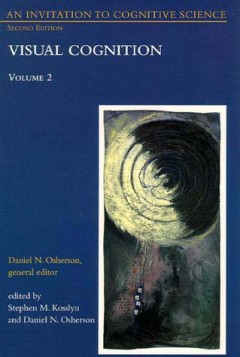
An invitation to cognitive science Volume 2 : Visual Cognition
An Invitation to Cognitive Science provides a point of entry into the vast realm of cognitive science, offering selected examples of issues and theories from many of its subfields. All of the volumes in the second edition contain substantially revised and as well as entirely new chapters.Rather than surveying theories and data in the manner characteristic of many introductory textbooks in the f…
- Edition
- Edisi kedua
- ISBN/ISSN
- 0585053758
- Collation
- 1 online resource : illustrations
- Series Title
- -
- Call Number
- 153 INV
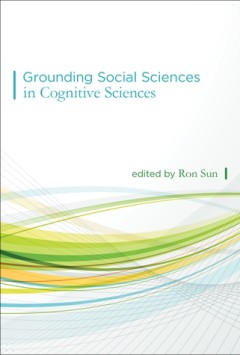
Grounding Social Sciences in Cognitive Sciences
Exploration of a new integrative intellectual enterprise: the cognitive social sciences.OCLC-licensed vendor bibliographic record.
- Edition
- -
- ISBN/ISSN
- 9780262305402
- Collation
- 1 online resource (ix, 455 pages) :illustrations
- Series Title
- -
- Call Number
- -
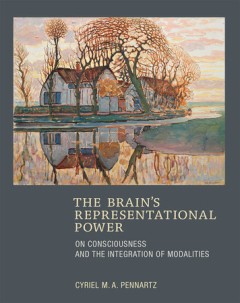
The Brain's Representational Power: On Consciousness and the Integration of M…
Although science has made considerable progress in discovering the neural basis of cognition, how consciousness arises remains elusive. In this book, Pennartz analyzes which aspects of conscious experience can be peeled away to access its core: the relationship between brain processes and the qualitative nature of consciousness. Pennartz traces the problem back to its historical foundations and…
- Edition
- -
- ISBN/ISSN
- 9780262330121
- Collation
- 1 online resource (xi, 382 pages, 12 unnumbered pages of plates) :illustrations (some color)
- Series Title
- -
- Call Number
- -

The pragmatic turn toward action-oriented views in cognitive science
Cognitive science is experiencing a pragmatic turn away from the traditional representation-centered framework toward a view that focuses on understanding cognition as 'enactive'. This enactive view holds that cognition does not produce models of the world but rather subserves action as it is grounded in sensorimotor skills. In this volume, experts from cognitive science, neuroscience, psycholo…
- Edition
- -
- ISBN/ISSN
- 9780262333290
- Collation
- 1 online resource (xi, 418 pages) :illustrations.
- Series Title
- -
- Call Number
- -
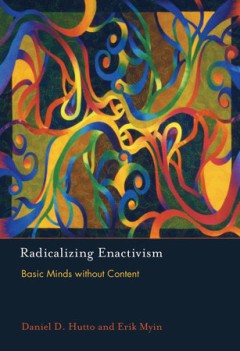
Radicalizing Enactivism: Basic Minds without Content
Hutto and Myin promote the cause of a radically enactive, embodied approach to cognition which holds that some kinds of minds - basic minds - are neither best explained by processes involving the manipulation of contents nor inherently contentful. It opposes the widely endorsed thesis that cognition always and everywhere involves content. The authors defend the counter-thesis that there can be …
- Edition
- -
- ISBN/ISSN
- 0262312174
- Collation
- 1 online resource
- Series Title
- -
- Call Number
- -
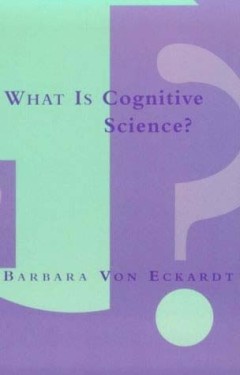
What Is Cognitive Science?
A Bradford book."OCLC-licensed vendor bibliographic record.
- Edition
- -
- ISBN/ISSN
- 9780262285629
- Collation
- 1 online resource (x, 466 pages) :illustrations
- Series Title
- -
- Call Number
- -
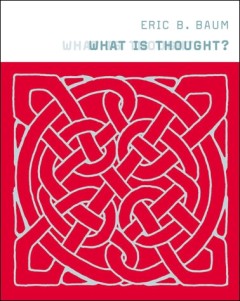
What Is Thought?
Bradford Books.In What Is Thought? Eric Baum proposes a computational explanation of thought. Just as Erwin Schrodinger in his classic 1944 work What Is Life? argued ten years before the discovery of DNA that life must be explainable at a fundamental level by physics and chemistry, Baum contends that the present-day inability of computer science to explain thought and meaning is no reason to do…
- Edition
- -
- ISBN/ISSN
- 9780262310574
- Collation
- 1 online resource (495 pages)
- Series Title
- -
- Call Number
- -
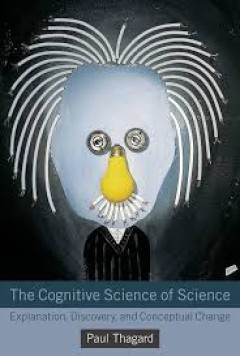
The Cognitive Science of Science: Explanation, Discovery, and Conceptual Change
A cognitive science perspective on scientific development, drawing on philosophy, psychology, neuroscience, and computational modeling.OCLC-licensed vendor bibliographic record.
- Edition
- -
- ISBN/ISSN
- 0262301725
- Collation
- 1 online resource (xii, 365 pages) :illustrations
- Series Title
- -
- Call Number
- -
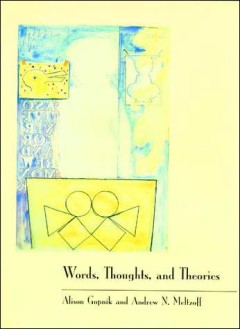
Words, thoughts, and theories
"A Bradford book."OCLC-licensed vendor bibliographic record.
- Edition
- -
- ISBN/ISSN
- 9780262274098
- Collation
- 1 online resource (xvi, 268 pages).
- Series Title
- -
- Call Number
- -

Mind in nature :Dewey, cognitive science, and a naturalistic philosophy for l…
"A reassessment of the influence of John Dewey's mature work, especially "Experience and Nature" on recent trends in cognitive science"--OCLC-licensed vendor bibliographic record.
- Edition
- -
- ISBN/ISSN
- 9780262373463
- Collation
- 1 online resource
- Series Title
- -
- Call Number
- -
 Computer Science, Information & General Works
Computer Science, Information & General Works  Philosophy & Psychology
Philosophy & Psychology  Religion
Religion  Social Sciences
Social Sciences  Language
Language  Pure Science
Pure Science  Applied Sciences
Applied Sciences  Art & Recreation
Art & Recreation  Literature
Literature  History & Geography
History & Geography